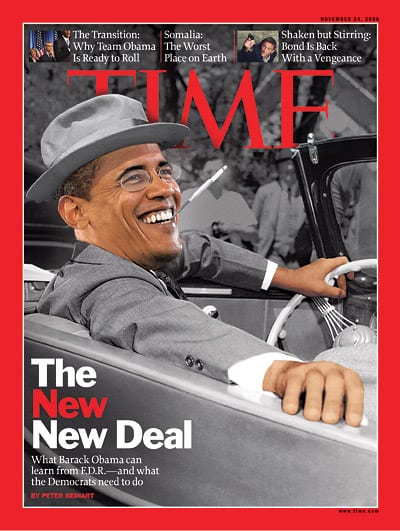THE OMINOUS PARALLELS: In the Weekly Standard, Robert Wargas reviews a new Roosevelt biography, Man of Destiny by Alonzo Hamby. Note this detail:
Why, then, do many even outside the progressive tradition look fondly on Roosevelt’s presidency? It may be because he was an effective steward of American power at a time when it was most critical, combining just the right amount of hard-boiled realism and democratic idealism. But while FDR could hit all the right notes about American liberty and democracy, Hamby sniffs out some hypocrisy:
When Roosevelt and the wider liberal community talked about the breakup of empires, somehow the Soviet empire, stretching from the Bering Strait to the Baltic Sea and harboring open designs on eastern Europe, seems never to have come to mind. Were the people of Gambia more oppressed than the people of Ukraine?
During the Cold War, Jeane Kirkpatrick would define this syndrome by its most recognizable trait: demanding liberalization from everyone except Moscow. FDR’s own attitude toward Soviet Russia was an odd combination of resentment and admiration. He recognized that communism, especially under Stalin’s direction, was totalitarian; yet he could never quite condemn it the way an American progressive was apt to take on bankers.
Some things never change.

